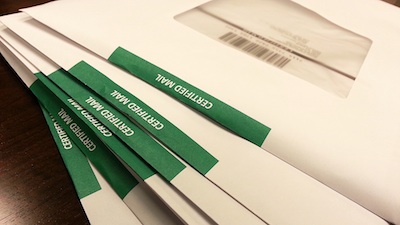
You show up in court with a US Certified Mail “Green Card” delivery receipt, evidence that supposedly proves you delivered a timely notice. The other party simply stands up and says quizzically, “Sure we got the certified letter, but no one in our office could figure out why we were sent an empty envelope!” And of course, there’s no proof of what was or wasn’t inside the envelope. Did the mail room attendant or administrator forget to insert the letter?
Maybe. Maybe not. Case dismissed.
Don Engel, Managing Partner of Engel & Siegel, LLC, a Chicago-based law firm, vividly recalls this episode, as it happened to his team.
Is proof of content important or simply “nice to have”?
Certainly with paper delivery of certified or courier letters, it may be useful in disputes like the one previously described. With electronic delivery of attached letters, it may be essential — that is, if there is consequence if someone claims after the fact that there was no attachment to your carefully drafted email.
After this experience, Engel began to use RMail, with built in Registered Email™ technology, to receive a Registered Receipt record of the uniform timestamp of legal delivery, message and attachment content, all returned and packaged in a court-admissible email receipt.
“We now have no problems proving what was sent, delivered, opened, and attached. We have used RPost’s Registered Receipt email record successfully in State and Federal court,” explains Engel.
To use RMail, Engel added the RMail plugin for Microsoft Outlook to his Outlook email client. When sending important correspondence, he now uses the “Send Registered” button instead of the normal “Send” button. Similar apps are available for Gmail and other sending platforms.
Find More:
How to Recall an Email in Outlook
There are many common misconceptions about proving email delivery, and this has caused many people to get burned by legal disputes about “who said what when.” With built in Registered Email™ technology, RMail fills the gap in certified e-delivery proof, providing assurance of delivery, open tracking visibility, and legally admissible and verifiable proof.
.jpg)
February 13, 2026

February 06, 2026

January 30, 2026

January 23, 2026

January 16, 2026